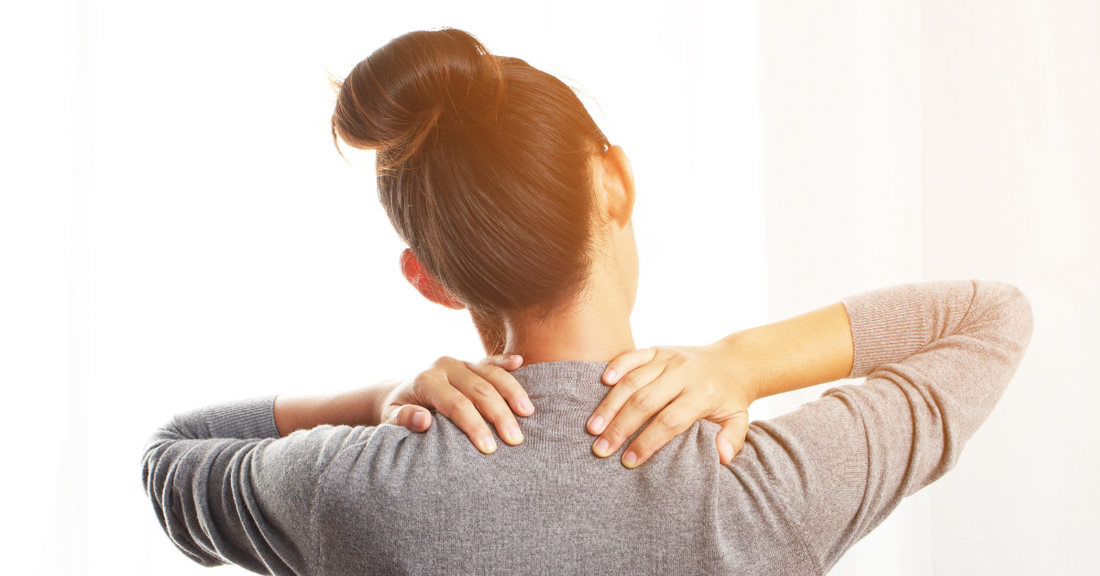
Building Bone Health During Peri-Menopause and Beyond
Share
When talking about Women's health, conversations often revolve around hormones, gut health and nervous system regulation. These are all incredibly important, but one area that often doesn’t get the attention it truly deserves is bone health.
Maintaining strong bones specifically, preserving bone density, is essential for healthy ageing in women. The perimenopausal years, along with menopause and beyond, are a particularly critical window. This is because oestrogen, our protective hormone, begins to decline.
Oestrogen plays a direct role in maintaining the strength and integrity of bones. When levels fall, bones break down faster than the body can replace them. Without oestrogen’s protection, women become more vulnerable to conditions such as osteopenia (early bone loss) and osteoporosis (more significant bone density loss).
While these may sound like ‘silent’ conditions, their impact can be life changing. Globally hip fractures are estimated to affect around 18% of women and 6% of men (Veronese N, 2018). Beyond the fracture itself, recovery is often long and challenging, affecting independence and everyday activities like shopping, washing, cooking, gardening and even enjoying hobbies.
The good news? You can take proactive steps now to maintain, and even build, bone strength. With the right movement, nutrition and lifestyle choices, women can protect their bones, safeguard independence and age with vitality and confidence.
Here are our top tips to building bone health:
Get Active
- Weight bearing exercise: These are exercises where your body works against gravity—think strength training, brisk walking, stair climbing or even dancing. Research shows that just three sessions per week can significantly slow bone loss and stimulate bone growth. Resistance training with weights or resistance bands is the gold standard, as it builds both bone and muscle.
- Balance and flexibility: Preventing falls is just as important as strengthening bones. Practices like yoga, pilates, tai chi and dance help improve balance, coordination and flexibility. Even a daily walk can keep bones and joints moving.
Nourish with Bone Health Foods
What you eat directly shapes your bones. A nutrient-rich, whole-foods approach is the foundation.
- Whole foods first: Aim for colourful vegetables, high quality protein (fish, eggs, legumes, lean meats), nuts, seeds and healthy fats are all essential building blocks for bone health.
- Good gut health matters: Nutrient absorption begins in the gut. If digestion is sluggish or the microbiome is out of balance, even the best diet won’t fully support your bones. Fibre, fermented foods (kefir, sauerkraut, kimchi), and good hydration keep your gut primed.
- Prunes proven for bone health: Research shows that just 5–6 prunes a day (about 50 g) can help preserve hip bone density and increase markers of bone formation in postmenopausal women (De Souza MJ, 2022; Hechtman, 2020). A simple, delicious daily habit!
Key Bone-Building Nutrients
Some nutrients that deserve special attention:
- Calcium: The backbone of bone structure. Food sources include leafy greens, almonds, tahini, sardines and dairy (if tolerated). Aim for 1200 mg a day. For example: 1 cup milk in morning coffee/porridge (300 mg), Yoghurt with fruit & seeds (350 mg), 40 g cheese with lunch (300 mg), 1 cup broccoli at dinner (60 mg), 2 tbsp tahini in salad dressing (120 mg) equalling 1130mg of total calcium.
- Vitamin D3 and K2: Vitamin D (sunlight, eggs, fatty fish, fortified foods) helps your body absorb calcium, while Vitamin K2 ensures calcium is deposited into bones and not soft tissues like arteries. Together, they are a bone-strengthening duo.
- Magnesium: Often overlooked, magnesium is critical for converting Vitamin D into its active form and for balancing calcium in the body. Find it in pumpkin seeds, spinach, avocado and dark chocolate (yes, chocolate for your bones—how good is that!).
Lifestyle choices that protect the bones:
Bone health isn’t just about what we eat and how we move, our daily habits make a big difference:
- Limit alcohol: Excess alcohol intake blocks absorption of key bone nutrients like calcium.
- Avoid smoking: Smoking accelerates bone loss and weakens the skeleton over time.
- Limit caffeinated and carbonated drinks: In women with low calcium intake, carbonated drinks have been linked to lower bone mass (Hechtman, 2020). Swap fizzy drinks for water, coconut water, green juices or mineral-rich broth.
Bone strengthening meals
Bring bone-nourishing nutrients to your plate with these recipes:
- Tahini Treats: Tahini is made from ground sesame seeds which are calcium-rich. Try our Tahini Treats for a delicious way to support your bones!
- Fruit and Nut Chocolate Bark: Full of magnesium from our pure cacao buttons, this Chocolate Bark is a medicinal treat!
- Crispy Skinned Salmon, Steamed Greens with a Sesame and Lime Reduction: The perfect bone building meal packed with key nutrients like calcium, vitamin D and Omega-3 fatty acids! Try it here.
Bone health may not always grab the spotlight, but it’s the quiet foundation of women’s vitality in perimenopause and beyond. By nurturing your bones through simple, consistent choices in movement, nutrition, and lifestyle, you’re investing in decades of strength and freedom.
Strong bones are more than protection against fractures, they are your foundation for living fully. By caring for them now, you’re investing in the freedom to move with ease, embrace new adventures, and enjoy life with vitality and confidence for years to come.
If you want extra dietary support for during perimenopause, menopause and beyond, then dive into our supportive programs here!
References:
- Veronese N, Maggi S. Epidemiology and social costs of hip fracture. Injury. 2018 Aug;49(8):1458-1460. doi: 10.1016/j.injury.2018.04.015. Epub 2018 Apr 20. PMID: 29699731.
- De Souza MJ, Strock NCA, Williams NI, Lee H, Koltun KJ, Rogers C, Ferruzzi MG, Nakatsu CH, Weaver C. Prunes preserve hip bone mineral density in a 12-month randomized controlled trial in postmenopausal women: the Prune Study. Am J Clin Nutr. 2022 Oct 6;116(4):897-910. doi: 10.1093/ajcn/nqac189. PMID: 35798020.
- Hechtman, L. (2020) Advanced clinical naturopathic medicine. Chatswood: Elsevier.

